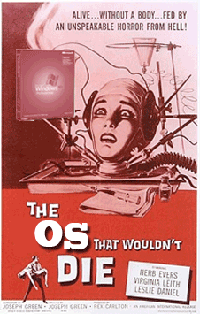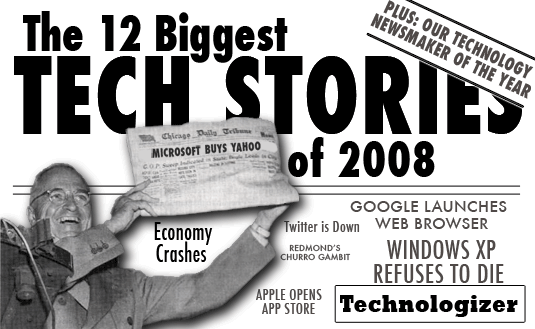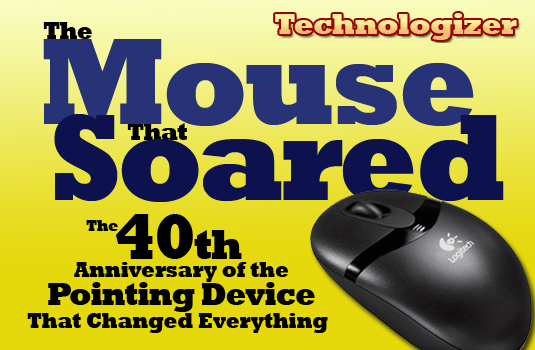 As I write this, there are slightly fewer than 22.5 hours left to go before 2008 is history. I promise I’ll stop looking back at the year momentarily–I already summed up its twelve biggest stories–but I’m in the mood to document a few more noteworthy items that made the year what it was. I’m calling this Technologizer’s Most of 2008, and it begins after the jump…
As I write this, there are slightly fewer than 22.5 hours left to go before 2008 is history. I promise I’ll stop looking back at the year momentarily–I already summed up its twelve biggest stories–but I’m in the mood to document a few more noteworthy items that made the year what it was. I’m calling this Technologizer’s Most of 2008, and it begins after the jump…
Tag Archives | Microsoft
Xbox Explores Its Adolescence
It seems the Xbox 360 is confused with itself, judging from a recent New York Times blog post entitled “What Xbox Wants to Be When It Grows Up.”
The author, Saul Hansel, notes that Microsoft “has resisted making the Xbox some sort of Frankensteinian MSN Windows Live Game Center Personal Spreadsheet Platform and Household Vacuum Robot.” Yet, that seems to be examctly what Shane Kim, the console’s head of strategy and business development, is angling for.
“We don’t have the hubris that says we have been supersuccessful in gaming so let’s chase this separate entertainment thing,” he said.”We are building out from where we are at.”
Right. So scrolling down the interview, you’d expect to see some discussion of how to improve the Xbox brand, perhaps by capturing some of the folks who strayed to the Wii. Instead, Kim says he’s thinking of a music service (like iTunes?) or a way to watch sports clips while talking to friends (like television?). He then says integration with sites like Hulu and YouTube are his first instinct (but not for free, we imagine, given Xbox Live’s pay-for-everything MO).
So much for not trying to be all things to all people.
Expanding the Xbox’s capabilities isn’t a bad idea, but it’s not the best one either. The article notes how the Wii is walloping the Xbox 360 in popularity, but glosses over the fact that casual, family-friendly games are the reason why. Even if it wants to expand its multimedia offerings, the Xbox still has to build a healthy body through widespread gaming appeal as opposed to a few niche services. Unfortunately, Kim doesn’t get one quote in the article about game development strategy.
And here’s the kicker: Hensel says Microsoft is looking to integrate Xbox Live with Windows, eventually connecting it to MSN and Windows Live, pretty much exactly what he said the company had avoided in the past.
Mary Shelley would be proud.
2 comments
The Five Lives (So Far) of Windows XP
With the latest news about Windows XP getting an unexpected stay of execution, I paused to look back at past stories about Microsoft extending the period that folks can buy the operating system, in one form or another. I count five different supposed dates of death for XP so far, and so many extensions of one sort or another that I’m now totally confused.
5 comments
Windows XP Lives! Again!
 Windows XP was theoretically replaced by Windows Vista almost two years ago now. But many, many people still prefer to buy computers loaded with XP than with Vista. That’s surely not a reality that Microsoft is very happy with, but it’s one that it has to deal with. And so the company keeps giving XP brief new leases on life, to the point where many users will be able to segue directly from XP to Windows 7 and pretend that Vista never existed.
Windows XP was theoretically replaced by Windows Vista almost two years ago now. But many, many people still prefer to buy computers loaded with XP than with Vista. That’s surely not a reality that Microsoft is very happy with, but it’s one that it has to deal with. And so the company keeps giving XP brief new leases on life, to the point where many users will be able to segue directly from XP to Windows 7 and pretend that Vista never existed.
ChannelWeb is reporting that system builders–the companies that make “white box” PCs that aren’t marketed like ones from the big guys–will be able to get their hands on copies of XP through May 30th; the cut-off date had previously been January 31st. ZDNet’s Mary Jo Foley notes that the deadline for netbooks (which Microsoft likes to call Ultra Low-Cost PCs, or ULPCs) still seems to be June 30th, 2010.
The deadline for major manufacturers was June 30th of this year. Which hasn’t stopped them from using various workarounds to continue to give customers the operating system they want.
I’m glad that there are still quiet, convoluted options for people who want XP to get it. But wouldn’t it have been cool if Microsoft had taken the opportunity to openly reconsider XP’s fate and simply extend sales for all comers? Wouldn’t it have gotten the company tons of favorable publicity? Doesn’t it make sense, as a rule, to give your customers what they say they want from you if you possibly can?
Years ago, Corel had an interesting sales strategy with its CorelDraw package. It kept two or three versions on the market at a time, with earlier editions available at a discount from the newest one’s price. It would have been interesting to see Microsoft pursue an interesting approach. Even if it were XP, rather than Vista, that some people would have been willing to pay a premium for…
21 comments
The 12 Biggest Tech Stories of 2008

Techwise, I’m still not sure whether I’m grateful 2008 is almost over or sorry to see it shuffle off into the past. I do know that it was a strange, eventful year–and that much of the biggest news involved Apple, Google, Microsoft, and various combinations thereof. Here’s a recap of the year’s biggest stories, as judged by a blue-ribbon panel consisting of…well, me. Feel free to counter my choices in comments if you disagree with ’em–actually, I’d be grateful if you would.
11 comments
Schiller vs. Ballmer: The Inevitable, Unexpected Keynote Smackdown
 Mind if I state the obvious? Steve Jobs is the undisputed master of the tech-product keynote, and if there’s anyone who’s a very distant second place, it sure ain’t Bill Gates. Yet the only other tech keynote that’s got any history to it other than the Jobs Macworld Expo ritual has been the Bill Gates keynote in Las Vegas, a tradition even more venerable than the Macworld Expo Stevenote. It even outlasted Comdex, the show it was given at–Gates simply transferred his act to CES.
Mind if I state the obvious? Steve Jobs is the undisputed master of the tech-product keynote, and if there’s anyone who’s a very distant second place, it sure ain’t Bill Gates. Yet the only other tech keynote that’s got any history to it other than the Jobs Macworld Expo ritual has been the Bill Gates keynote in Las Vegas, a tradition even more venerable than the Macworld Expo Stevenote. It even outlasted Comdex, the show it was given at–Gates simply transferred his act to CES.
But with Gates’ retirement from active duty at Microsoft, next month’s CES will be headlined by Microsoft CEO Steve Ballmer. He’ll give keynote on Wednesday, January 7th–the day after Phil Schiller gives his first and final presentation as Steve Jobs’ substitute at Macworld Expo in San Francisco. In two days, we’ll see two changings of the keynote guard at the only two keynotes that ever mattered.
Jobs and Gates: The two most iconic entrepreneurs that tech has produced to date. Schiller and Ballmer? Not iconic. It’s like seeing Marlin Perkins sidekick Jim Fowler take over Mutual of Omaha’s Wild Kingdom the same week that Ed McMahon assumes the duties of hosting The Tonight Show.
In the era of Jobs and Gates, you didn’t have to give a nanosecond’s thought to who would give the more impressive presentation. With Schiller vs. Ballmer, it’s a tougher call. We’ve seen both of them do demos before, but the spotlight has never shined on them quite as brightly as it will in three weeks.
Who will be the new king of the conference keynote? (Yes, I know that Schiller plans to abdicate after one morning.) You’ve got me, but as we prepare to answer that question, we can at least prep ourselves by analyzing existing footage of the two execs ‘ communication styles.
Schiller:
Ballmer:
Schiller:
Ballmer:
Schiller:
Ballmer:
So who would you rather watch at work next month? So help me, I may witness both in person…
11 comments
The Best of Frenemies

Frenemy: Someone who is both friend and enemy, a relationship that is both mutually beneficial or dependent while being competitive, fraught with risk and mistrust.
That’s not a bad first stab at a definition, but let’s expand on it: A frenemy can be a friend who evolves into an enemy. Or an enemy who morphs into a friend. Or a friend who seems to be an enemy, or an enemy who seems to be a friend. Or someone who teeters precariously between friendship and enemyhood, sometimes over the course of decades. One thing, however, is undeniable about frenemies: The technology world has always been rife with them. Consider these twelve outstanding examples–past, present, and future.
31 comments
Report: Google Polishes Off Chrome
 The browser was are heating up– again. Google vice president Marissa Mayer said that company’s Chrome browser is on the verge of coming out of beta, according to a report by TechCrunch. Chrome made its debut as a beta on September 2nd; for Google, a beta period of only a few months is a surprisingly short one.
The browser was are heating up– again. Google vice president Marissa Mayer said that company’s Chrome browser is on the verge of coming out of beta, according to a report by TechCrunch. Chrome made its debut as a beta on September 2nd; for Google, a beta period of only a few months is a surprisingly short one.
Google’s applications are a likely vehicle for distributing Chrome, with Apple having paved the way for more aggressive bundling by tethering distribution of Safari to iTunes. There is also plenty of potential for high-profile promotion of Chrome at Google’s wildly popular Web properties, and the company has several hardware partners that could pre-load the browser on PCs.
Chrome is the bedrock for Google’s whole Web application platform. Its pillars are speed and stability: Chrome’s zippy JavaScript engine is at the top of the class, and its use of separate processes for browser tabs and windows can make browsing more reliable.
The arrival of Chrome has also pressured other browser makers such as Firefox to accelerate the performance of their JavaScript engines–making Google’s applications perform better across the board.
Google will be leveraging Chrome to deliver the open source Native Client project, a plug-in that permits Web applications to directly access hardware resources. Let’s hope that Native Client is effectively sandboxed so it can’t be abused by hackers, so we don’t revisit the bad old days of the ubiquitous ActiveX exploit. The more Google can blur the lines between client applications and Web applications, the more competitive it will be against entrenched software. CPU intensive software will no longer have to run on the desktop. The concept of what type of application a Web application can be would be drastically changed.
Chrome is based upon the WebKit open source project, making it easier for developers to make their sites and services Chrome-friendly, because it is not something entirely new. Google is likewise providing a framework for the development of secure Firefox-like extensions for Chome. Developers could very well fall in love with Chrome, but with technologies and tools from Adobe, Microsoft, Sun, and others in the mix, not to mention HTML 5, they may have to pick their side of the battlefield. You can see why it’s in Google’s best interest to release a Chrome that’s ready for prime time sooner rather than later.
2 comments
The Mouse That Soared

On December 9th, 1968, Stanford Research Institute scientist Douglas Engelbart demonstrated his unique invention–the computer mouse–for the first time in public. It took another decade and a half for it to catch on, but once it did, computing was never the same. And today, it’s hard to imagine using a desktop or laptop computer without a mouse (or one of its latter-day substitutes such as the touchpad). In celebration of the anniversary, here’s a gallery of some of the mightiest mice of the last four decades.
3 comments
Microsoft’s Fashion Statement
 In a move that somehow seems simultaneously inevitable and unnecessary, Microsoft has released a line of T-shirts–which, of course, it’s calling Softwear. They feature 1980s-era graphics with the old-school Microsoft logo which nobody has given any thought to in the past 15 years, were designed in collaboration with rapper Common, and show up in stores on December 15th. (No word yet on whether Microsoft will patch ’em for you if they’re discovered to have any holes.) In celebration of this milestone for American casualwear, we’ve assembled a slideshow of the shirts.
In a move that somehow seems simultaneously inevitable and unnecessary, Microsoft has released a line of T-shirts–which, of course, it’s calling Softwear. They feature 1980s-era graphics with the old-school Microsoft logo which nobody has given any thought to in the past 15 years, were designed in collaboration with rapper Common, and show up in stores on December 15th. (No word yet on whether Microsoft will patch ’em for you if they’re discovered to have any holes.) In celebration of this milestone for American casualwear, we’ve assembled a slideshow of the shirts.

